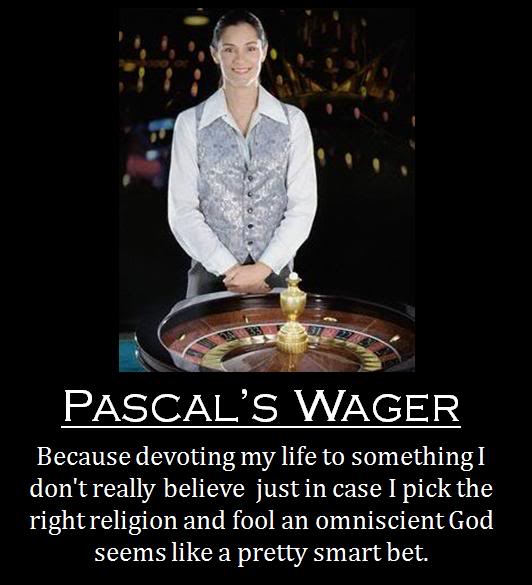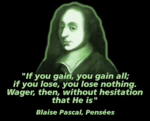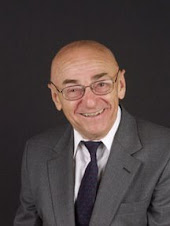.jpg) "There is no sadder sight than a young pessimist.” Mark Twain
"There is no sadder sight than a young pessimist.” Mark TwainWednesday, September 30, 2009
Scrooge
.jpg) "There is no sadder sight than a young pessimist.” Mark Twain
"There is no sadder sight than a young pessimist.” Mark TwainTuesday, September 29, 2009
practical immortality
 Magnificent debut last night for Ken Burns' latest tour de force, The National Parks. Loved the Muir look-alike historian's closing quote: "This," immersion in, identification with the natural world, "is true freedom. A good, practical sort of immortality." Looking for something larger than yourself to connect with? You could do lots worse than Nature. Episode 2 is on right now. That's reality TV.
Magnificent debut last night for Ken Burns' latest tour de force, The National Parks. Loved the Muir look-alike historian's closing quote: "This," immersion in, identification with the natural world, "is true freedom. A good, practical sort of immortality." Looking for something larger than yourself to connect with? You could do lots worse than Nature. Episode 2 is on right now. That's reality TV.Monday, September 28, 2009
Bertie Russell, action hero

craving reality
 Garrison Keillor was talking about reality biting him in the butt. In his own more elegant nineteenth-century Transcendentalist way of speaking, that's what Henry Thoreau was talking about too. Face-to-face is better. But I'm not sure "we crave only reality" still, here in the 21st century. Reality tee-vee, maybe. Welcome to the cave. (Speaking of which: check out the ursine version of Henry, it's an inspiration. The reality of work need not be drudgery, he reminds us.)
Garrison Keillor was talking about reality biting him in the butt. In his own more elegant nineteenth-century Transcendentalist way of speaking, that's what Henry Thoreau was talking about too. Face-to-face is better. But I'm not sure "we crave only reality" still, here in the 21st century. Reality tee-vee, maybe. Welcome to the cave. (Speaking of which: check out the ursine version of Henry, it's an inspiration. The reality of work need not be drudgery, he reminds us.)
Sunday, September 27, 2009
show must go on
 Garrison Keillor was back on the radio last night, not long after checking himself into the hospital following what was reported as a small stroke. He talked it: about a guy who'd lost years of memory and his ability to carry a tune, after a stroke; and about autumn as a time to think about mortality; and about his gratitude for the good and competent people who staff our hospitals and keep us ticking.
Garrison Keillor was back on the radio last night, not long after checking himself into the hospital following what was reported as a small stroke. He talked it: about a guy who'd lost years of memory and his ability to carry a tune, after a stroke; and about autumn as a time to think about mortality; and about his gratitude for the good and competent people who staff our hospitals and keep us ticking.And that is a gift to the man who has been struck by a stroke: our common humanity. It's powerful in a hospital. Instead of a nice linen jacket and cool jeans and black T, you are shuffling around in a shabby cotton gown like Granma in "Grapes of Wrath," and you pee into a plastic container under the supervision of a young woman who makes sure you don't get dizzy and bang your noggin.
Two weeks ago, you were waltzing around feeling young and attractive, and now you are the object of Get Well cards and recipient of bouquets of carnations. Rich or poor, young or old, we all face the injustice of life — it ends too soon, and statistical probability is no comfort. We are all in the same boat, you and me and ex-Governor Palin and Congressman Joe Wilson, and wealth and social status do not prevail against disease and injury. And now we must reform our health insurance system so that it reflects our common humanity. It is not decent that people avoid seeking help for want of insurance. It is not decent that people go broke trying to get well. You know it and I know it. Time to fix it.
Saturday, September 26, 2009
Satch
 The Cards are stuck on 1, the Rockies rallied and the Cubbies rocked. (Gotta love baseball poetry! Annie Dillard went on about that once, repeating "Terwilliger bunts one" until it turned the language to goo. Good writing does that sometimes.)
The Cards are stuck on 1, the Rockies rallied and the Cubbies rocked. (Gotta love baseball poetry! Annie Dillard went on about that once, repeating "Terwilliger bunts one" until it turned the language to goo. Good writing does that sometimes.)Satchel Paige's Rules for Longevity
1. Avoid fried meats, which angry up the blood.
2. If your stomach disputes you, lie down and pacify it with cool thoughts.
3. Keep the juices flowing by jangling around gently as you move.
4. Go very light on the vices, such as carrying on in society. The social rumble ain't restful.
5. Avoid running at all times.
6. Don't look back. Something might be gaining on you.
Friday, September 25, 2009
magic number

"One is a magic number," I recall from Schoolhouse Rock a couple years ago. And it happens that 1 is the magic number for "my team" the Cards, this day. A victory over Colorado tonight, or a Cubbies loss to the Giants, will put El Birdos (their silly name from my '60s youth, in the days of Gibson and Brock and Flood and Cepeda) officially into the post-season.
| St. Louis | 89 | 64 | .582 | - | - | - | 5-5 | L1 | 46-32 | 43-32 | 9/23 @ HOU, L 0-3 | 9/25 @ COL, 8:10P |
| Chicago | 79 | 73 | .520 | 9.5 | 1 | 6.5 | 5-5 | W1 | 44-30 | 35-43 | 9/24 @ SF, W 3-2 | 9/25 @ SF, 10:15P |
nice office

Michael Shermer is a kindred spirit, to me and Emerson (not that I've approached their literary fecundity, yet). Just as the Sage of Concord distinguished the residence of his books from the un-roofed places in which he did his best thinking, so Shermer tweets:
Thursday, September 24, 2009
Frank Pajares

For years, Frank Pajares of Emory University maintained the best unofficial William James site on the web. And so it comes as a huge sadness to learn, belatedly, that Professor Pajares passed away earlier this year. I never met him in person, though he was kind enough to post news of my James book's publication a few years ago. His whimsical personality was evident. Like me, he loved Calvin and Hobbes. Like me, he would have appreciated someone observing in connection with his own passing what James observed of Emerson's:
adversity
Atheism and Spirituality
 John Dewey (among others), as well as more recent writings and public polemics involving "New Atheists" Richard Dawkins, Christopher Hitchens, Sam Harris, and Daniel Dennett.
John Dewey (among others), as well as more recent writings and public polemics involving "New Atheists" Richard Dawkins, Christopher Hitchens, Sam Harris, and Daniel Dennett.


Wednesday, September 23, 2009
not nice

James Wood, criticizing both the New Atheists and some of their critics (including the literary critic Terry Eagleton) says their God-- the one they disbelieve in-- is too literal, too much like Santa in the clouds. Real believers believe in something more abstract and subtle and ethereal, less substantial and anthropomorphic. That, and the non-literal value of religious ritual and "mythos" (as opposed to "logos"), is Karen Armstrong's line in her new Case for God, too.
wanna bet?

"If there is a God," said Blaise Pascal, "He is infinitely incomprehensible. We are then incapable of knowing either what He is or if He is. This being so, who will dare to undertake to decide the question? How, therefore, shall Christians be blamed for not being able to give reason for their belief, since they profess a religion for which reason cannot be given?
Do not, then, reprove for error those who have made a choice; for you know nothing about it.
Yes; but you must wager. It is not optional. You are in the game. Which will you choose then?
Let us weigh the gain and the loss in wagering that God exists.
If you gain, you gain all; if you lose, you lose nothing.
Wager, then, without hesitation that He is. Labour to convince yourself, not by accumulating proofs of God, but by weakening your passions. The people who know the road which you would follow and are healed of the ills of which you would be healed. They began by acting in every way as if they believed, by taking holy water, having masses said, and so on. This will naturally make you believe and will stultify you. This way leads you to faith, let me tell you that it will lessen the passions which are your stumbling-blocks. Now, what harm will befall you in taking this side? You will be faithful, humble, grateful, generous, a sincere friend, truthful. Certainly you will not have those poisonous pleasures, glory and luxury; but will you not have others?
 Objection. Those who hope for salvation have happiness in that; but they have as a counterpoise the fear of hell.
Objection. Those who hope for salvation have happiness in that; but they have as a counterpoise the fear of hell.
Reply. Who has most reason to fear hell: he who is in ignorance whether there is a hell, and who is certain of damnation if there is; or he who certainly believes there is a hell and hopes to be saved if there is?" -Squashed philosophers
The real Calvin, btw, was dour, God-fearing, and convinced that salvation is beyond the gambler's calculations. Thomas Hobbes, an atheist, said life in a state of nature must have been "solitary, poor, nasty, brutish, and short."
Our Calvin's wager seems the better bet, seems to me: Dad's a proven provider.
Tuesday, September 22, 2009
Science and mysticism in the U.S.A.
 Great stuff on the Bob Edwards show this morning:
Great stuff on the Bob Edwards show this morning:happy yet?
 Are we having fun, in Happiness 101?
Are we having fun, in Happiness 101? There is that language, laden with optimistic expressions, "Having a good time," "enjoy yourself," "life is fun," "Don't worry, be happy," etc. - and then there are those who are pursued into the most conformist happiness by an obscure malaise that does not know what to call itself... An American said to me, "The trouble is that each of us is haunted by the fear of being less American than his neighbor."
Monday, September 21, 2009
God and science together
Sunday, September 20, 2009
"Four Horsemen"
true prayer
 Zev Chafets wonders if the 75% of Americans who say they pray regularly are doing it right. He asks lots of experts, who have lots of views. If he'd consulted the self-reliant Sage of Concord, he'd have heard: "don't grovel!" (Complete works of Emerson... more RWE... James on RWE centenary)
Zev Chafets wonders if the 75% of Americans who say they pray regularly are doing it right. He asks lots of experts, who have lots of views. If he'd consulted the self-reliant Sage of Concord, he'd have heard: "don't grovel!" (Complete works of Emerson... more RWE... James on RWE centenary)Prayer looks abroad and asks for some foreign addition to come through some foreign virtue, and loses itself in endless mazes of natural and supernatural, and mediatorial and miraculous. Prayer that craves a particular commodity, — any thing less than all good, — is vicious. Prayer is the contemplation of the facts of life from the highest point of view. It is the soliloquy of a beholding and jubilant soul. It is the spirit of God pronouncing his works good. But prayer as a means to effect a private end is meanness and theft. It supposes dualism and not unity in nature and consciousness. As soon as the man is at one with God, he will not beg. He will then see prayer in all action. The prayer of the farmer kneeling in his field to weed it, the prayer of the rower kneeling with the stroke of his oar, are true prayers heard throughout nature, though for cheap ends...
Another sort of false prayers are our regrets. Discontent is the want of self-reliance: it is infirmity of will. Regret calamities, if you can thereby help the sufferer; if not, attend your own work, and already the evil begins to be repaired...
As men's prayers are a disease of the will, so are their creeds a disease of the intellect...
But that's another post.
real virtue

Maybe it is time to trot out again old Ben Franklin's proposal for a new political party, our old ones haven't worked well together for a very long time. A United Party for Virtue, composed of excellence-seekers "acting only with a view to the good of mankind," is a pretty dream. (Hap Hyp, ch8).
But could just anybody join, on their mere word of wishing to transcend sect and narrow self-interest? I know what we'd all soon be shouting at one another: "You lie!"
Still, Aristotelian virtue-- maximizing potential, pursuing purpose, selflessly embracing the common interest-- sounds really good. It sounds excellent, in fact. Arete!
(Don't know much about Aristotle? Here's a three-minute primer from a vulgar Aussie-- mildly amusing, slightly informative.)
And Poor Richard is a good model of virtue in the American grain, not "goody goody" but (as Maira Kalman illustrates) with good and industrious intentions and a whole lot of zest and sparkle and wit. Sign me up.
And btw: HBO captured him perfectly, I hope. I much prefer his spirited wisdom to John Adams' New England testiness, even though I don't much follow Old Ben's advice about public anonymity. But young Ben, I'll bet-- the printer and Almanac publisher-- woulda been a blogger, under one name or another.
Can't say much for his singing in 1776, though.
Saturday, September 19, 2009
free-range kids?

Will we ever learn?
Jon Haidt scorns the old, long-rejected behaviorist dogma that "Unconditional love-- holding, nuzzling, and cuddling children for no reason... was the surest way to make [them] lazy, spoiled, and weak... John Watson wrote of his dream that one day babies would be raised in baby farms, away from the corrupting influences of parents. But until that day arrived, parents were urged to use behaviorist techniques to rear strong children: Don't pick them up when they cry, don't cuddle or coddle them, just dole out benefits and punishments for each good and bad action." (Happiness Hypothesis ch.6)
Might as well throw them to the wolves.
Recently, more humane voices had squelched the behaviorist din (and rescued infant organisms from the den): "children need love as well as milk," and touch, and secure, reliable, attached, nurturing parents who demonstrate no-strings affection.
But the hydra has been rearing its head again. One of its faces belongs to the ubiquitous Dr. Phil (no relation), who "tells us in his book Family First that what children need or enjoy should be offered contingently, turned into rewards to be doled out or withheld so they 'behave according to your wishes.' And 'one of the most powerful currencies for a child is the parents’ acceptance and approval.'"
And TV's Supernanny (or is it -ninny?) says, “The best rewards are attention, praise and love,” and these should be held back “when the child behaves badly until she says she is sorry,” at which point the love is turned back on.
I'm with Haidt on this one, and with Alfie Kohn when he writes that he'd be "glad to see less demand for skillful therapists if that meant more people were growing into adulthood having already felt unconditionally accepted." (Hap Hyp ch7)
Unconditional love doesn't mean total comfort and ease. The character-building benefits of (some) adversity in a child's life are evident and attractive, just as the squishy softness of privilege's children is repellent. I heard actor Wallace Shawn on Bob Edwards last Thursday, reading his autobiographical essay on the subject. Ick! (There's just something about the lives of New Yorker children... recalling Mr. Gill of Starbucks' fame).
But this new "free range" movement, letting small children walk (or ride the subway!) to school unaccompanied by a trusted adult? No. This is not Gilligan's Island, and we're supposed to be raising humans here. But yes, give them permission to eat a cookie without calling. That seems safe enough.
Only in America
"A person’s last days can be spent in any number of ways. But on the phone pleading with an insurer, that’s only in America."
What a damning, enlightening world tour from T.R. Reid. His The Healing of America "blends subjective and objective into a seamless indictment of our own disastrous health care system, an eloquent rebuttal against the arguments used to defend it, and appealing alternatives for fixing it. Mr. Reid starts with a methodical clarification of terms. First: universal health care. Far from a single socialized system, the various plans other countries use to cover all their residents are quite distinct. Some are as private as our own, and most offer considerably more in the way of choice..."
Whatever you call it, the system enjoyed by public employees and office-holding politicians in this country provides a huge safety net and security blanket. If it's good enough for your congressman, isn't it good enough for your kids?
But don't think this kind of reform is going to happen until those congressmen are out of the pockets of the insurers. Are we going to do the right thing, hold the insurers accountable, and put that safety net where it belongs-- under all our people, and all our kids? Or are we going to just continue to do the insurers' bidding? I say it's time to "nail those guys"-- the ones with the pockets and the ones in 'em.
Friday, September 18, 2009
James bio - 2
Time for our next installment from Richardson's James biography.
 This week's reading includes young William's attempts to buck up his younger brother's spirits in a letter that evokes images he'd imbibed while traveling with scientist Louis Agassiz's South America expedition, in the 1860s (more on that, and more). I wrote about this once, while drawing a connection between John Dewey's naturalistic version of spirituality and James's.
This week's reading includes young William's attempts to buck up his younger brother's spirits in a letter that evokes images he'd imbibed while traveling with scientist Louis Agassiz's South America expedition, in the 1860s (more on that, and more). I wrote about this once, while drawing a connection between John Dewey's naturalistic version of spirituality and James's.
In an uncharacteristic moment of self-revelation the stolid Yankee once apparently confided in his old student Max Eastman about a youthful "mystical experience" from his [John Dewey's] early stint in Oil City, Pennsylvania:
The essence of the experience was a feeling of oneness with the universe, a conviction that worries about existence and one's place in it are foolish and futile. "It was not a very dramatic mystic experience," Eastman continued. There was no vision, not even a definable emotion—just a supremely blissful feeling that his worries were over. Eastman quoted Dewey, ". . . to me faith means not worrying. . . . I claim I've got religion and that I got it that night in Oil City."
This melds very well with a homiletic, therapeutic, stoic, yet somehow joyous and de novo expression of James's unique view, dating from his prephilosophic youth but anticipating his most mature thought:
"Remember when old December's darkness is everywhere about you, that the world is really in every minutest point as full of life as in the most joyous morning you ever lived through; that the sun is whanging down, and the waves dancing, and the gulls skimming down at the mouth of the Amazon, for instance, as freshly as in the first morning of creation; and the hour is just as fit as any hour that ever was for a new gospel of cheer to be preached. I am sure that one can, by merely thinking of these matters of fact, limit the power of one's evil moods over one's way of looking at the cosmos."
of life as in the most joyous morning you ever lived through; that the sun is whanging down, and the waves dancing, and the gulls skimming down at the mouth of the Amazon, for instance, as freshly as in the first morning of creation; and the hour is just as fit as any hour that ever was for a new gospel of cheer to be preached. I am sure that one can, by merely thinking of these matters of fact, limit the power of one's evil moods over one's way of looking at the cosmos."
I find it compelling, and not at all coincidental or incongruous, that the two great pragmatic meliorists of classical American Philosophy each achieved in their twenties the same quasi-stoic insight that, as we have noted, carried the world's oldest person happily through her many days. [The world's oldest person had just died when I wrote that; her position was quickly filled, of course. But it's not a job with a lot of long-term security.] The power of imaginative self-transcendence to conquer egoistic distemper, especially when coupled with the wide-open perspective of life as a self-replicating, self-correcting chain, is unrivaled. It has been conclusively "verified." The spirit of acceptance and the spirit of reform belong together. The mature James, for one, is full of admiration for the spirit of acceptance in whatever blissful forms it may assume in the actual lives of men and women. And he is full of expectancy and hope.
He wasn't so sunny while aboard ship during the Brazilian expedition: he became very depressed and homesick, and probably would at that time have been incapable of cheering himself with the letter he sent to Bob.
But the 23-year old James was already a kind of incipient Stoic, in 1865. He was much more of one when he got his land legs back under him. One of the more engaging graduate seminars I've participated in was "Pragmatism and Stoicism," jointly offered by John Lachs and John Stuhr at Vanderbilt.
It's hard for some people to get that link (Pragmatists and Stoics, not Lachs and Stuhr). Some think that Pragmatists are all about "go-go-go"-ing, trying to change the world and ameliorate its wounds, never noticing cliffs and sharp edges. Not so. A wise Pragmatist knows there's a time to put on the Stoic's hat and accept external conditions as they stand, while turning inward and conjuring some skimming gulls.
And a wise Jamesian is prepared to act on the belief that such an inward turn is freely available to us all.
But at 25, we learn in this week's reading of Robert Richardson, James has now added another vocation to his "reject" list-- "Medicine is busted," he told a friend-- and is one step closer to a breakdown and posssible suicide that would have been anything but stoically reasonable.
Here, in case you ever need cheering-up. A little YouTube might have done young WJ some good.
Thursday, September 17, 2009
best kind of immortality
"How do you determine a student's grade?"
"Well, I add up the grades for the essays, quizzes, the midterm and final. I average them out. Then I consult my stomach."
That's what the late Fred Stocking, Williams College Shakespearian scholar, told his student (now NPR reporter) Barbara Bradley Hagerty. And it's my new stock answer to the perennial question.
Haggerty's radio tribute to her teacher is sweet. Old Shakespearians really are a breed apart. Aren't they, Dean?






 Charles Darwin (
Charles Darwin (











